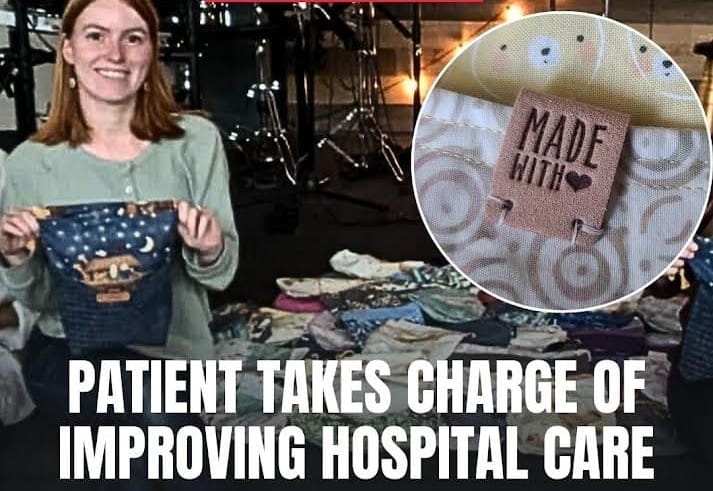From Grief to Grace: A Good News Interview
By Community Correspondent
It was a moment of quiet hope and healing when Christiana Sophia Conway walked into her local hospital carrying a large box filled with over 60 handmade cotton bags—each one a small, tangible act of compassion for women experiencing pregnancy loss.
Just three years earlier, she had stood in that same hospital lobby, heartbroken and grieving the remains of her miscarried baby.
"It felt bizarre," she said, "to be back in the room in much better circumstances felt powerful, almost healing".
The box of freshly ironed and neatly piled colourful drawstring bags were a far cry from the container she had received her baby's remains in all those years earlier.
The loss was the result of a miscarriage followed by a D&C surgery in her local hospital. Before the surgery, Christiana had asked for her baby's remains to be returned to her so that she and her husband could find their own way of laying
their baby's remains to rest - not an unusual request.

Shockingly, she was handed a take-out-style container following the surgery, wrapped in a white plastic bag with the words "hazardous" and "biological waste" printed in red across it.
For Christiana, who was in the midst of grieving her baby, it was devastating.
"It felt so disrespectful and dishonoring to our child. I don't believe it was done on purpose, probably just an oversight, but it hurt deeply," recounts Christiana, "I didn't do anything about it at the time because I was in the midst of grieving our baby and healing physically from the miscarriage. There was already so much to process and heal from."
That feeling of hurt led her to write a poem, Sparrow Fly, which was included in her poetry book, Someday Somewhere Beautiful, published by Kelsay Books in Spring 2025.
By that point, Christiana had mostly forgotten about the incident, but as she began rehearsing her poetry in preparation for the book launch event, that same poem ignited the hurtful memory and the realization that, since her experience, little may have changed at that hospital if no one else had spoken up since.
Christiana immediately wrote to her local health provider with oversight on the hospital where she experienced her surgery, not expecting to hear back, but
the response was quick and compassionate.
"They were shocked that this had happened to me, and deeply apologetic. I was invited onto a team of healthcare professionals at that same hospital to work on improving care for women who had experienced a miscarriage."
After months of ZOOM meetings and email chains, Christiana was eventually tasked with finding a suitable replacement for the plastic bags that usually house the fetal remains container.
It was decided that handmade drawstring bags would be appropriate, but Christiana admits that she didn't know how to sew.
Thankfully, she thought of several women in her church who love to sew and are passionate about helping others. Those women immediately took to designing the bags and supplying the materials, spending the summer sewing together at the
church and in their own homes when they had time.
"They're very gifted sewers!" said Christiana, "they were so dedicated to the task. The bags turned out beautiful - 100% cotton and double-lined! I wouldn't have known that before, but they've taught me a lot about sewing over these last three months, even how to hand stitch the little leather tags on, which I did!"
By the end of the summer, Christiana arranged a drop-off of the bags at the hospital, which was gratefully received.
The plan is for the bags to be shared among all 8 Vancouver Island hospitals. Unfortunately, due to the high rate of miscarriages, the bags will only last a year,
according to one of the lead surgeons at the hospital, but Christiana and her group of friends have already begun collecting patterns and materials to make future bags.
Helping improve the care for women who have had a miscarriage at this hospital doesn't take the memory of her own bad experience away, but it does help her find peace with it, knowing that something good has come out of that experience.

